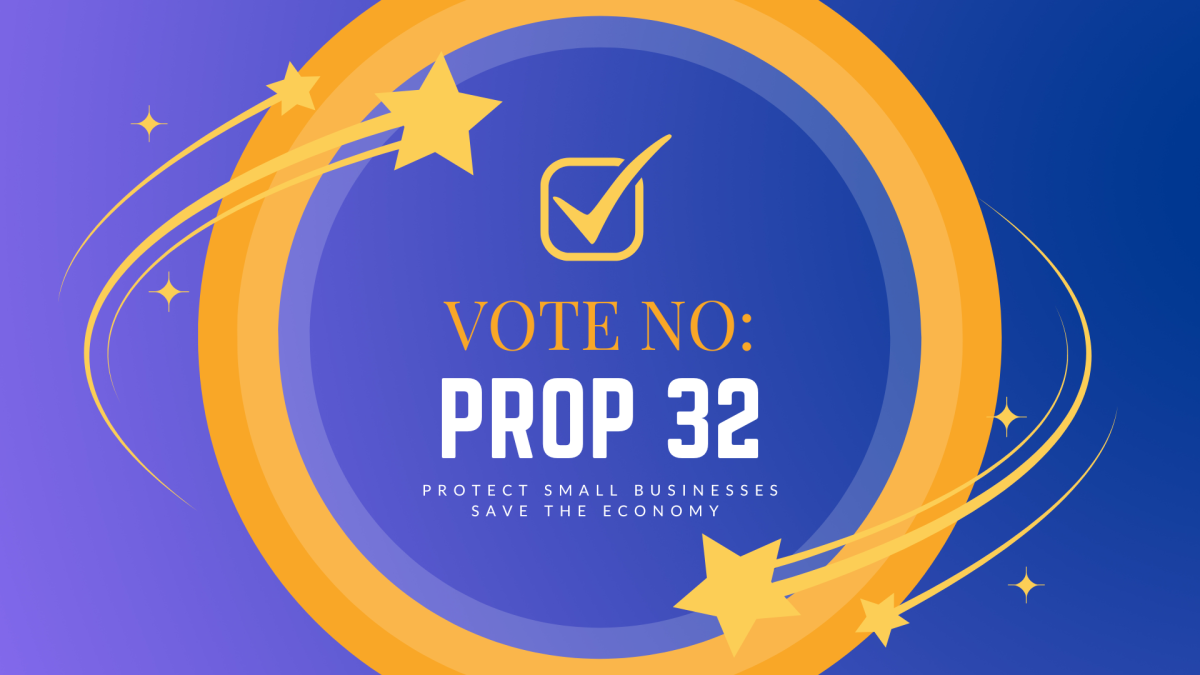The next great California ballot proposition mistake could be passed on Nov. 5: Proposition 32, which would ultimately increase the minimum wage to $18 an hour from its current $16 an hour. The job-killing effects of the proposition, if passed, will hurt the state’s economy and risk sparking inflation.
Let’s start by looking at the current laws surrounding the minimum wage. According to the Department of Labor (DOL), the federal minimum wage is set at $7.25 per hour; however, many states, including California, have set their own minimum wage.
According to the Legislative Analyst’s Office (LAO), California’s minimum wage is $16 per hour — which is adjusted yearly for inflation, at a maximum increment rate of 3.5% and a minimum increment rate of 0%.
Many sectors have their own minimum wage requirements, such as fast food restaurants requiring $20 per hour and healthcare workers $25 per hour. Many self-employed workers and independent contractors are not covered by the law.
So, what is Prop 32? LAO specifies Prop 32 as a bill that will increase California’s minimum wage to $17 and $18 per hour by 2026 and 2027 respectively — without this bill it will be $16.50 and $17 respectively. Adjustment with regards to inflation will be postponed until 2027.
This seems to be great for California workers, so why vote against it? While Prop 32 raises the minimum wage, it will also have adverse effects such as higher prices due to inflation, more job cuts, higher taxation and lower business profits according to the laws of supply and demand. Remember, whenever the cost is higher, demand goes down, resulting in potential job cuts and the need for higher taxes.
Perhaps even worse, according to LAO, a higher minimum wage will also result in higher prices, which is detrimental to everyone living in California. This is because someone will be paying for these new higher minimum wages, and that someone is the consumer, or you.
While Prop 32 aims to increase the betterment of lives of minimum wage workers, it fails to address what will happen next. According to the Wall Street Journal, when California raised the minimum wage for restaurants back in April of 2024, it saw a loss of 10,000 jobs before the law was even in place. If Prop 32 is signed into place, more layoffs will occur as workplaces will begin to automate their workforce because of the cost savings. As Prop 32 does not account for inflation until 2027, there will be two years of increased unemployment and higher prices.
Prop 32 would particularly hurt small businesses. As a report from NBC News made clear, 92% of businesses in California are classified as small businesses, and they would struggle to absorb the costs of these expansive new propositions. Economists reporting for the NBC argue that this proposition will take the wrong turn and financially ruin small businesses.
All the aforementioned are the immediate impacts of signing Prop 32 into place. For example, higher prices will lead to higher taxation, and higher inflation will lead to cuts to important lifelines in California’s government.
We don’t know the true intentions behind this bill, and current impacts after the bill being passed will not be good in any way as many economists have outlined. It is much better to wait for legislatures to create a well-nuanced minimum-wage bill than to hastily sign Prop 32 into effect, so for the time being, a no vote on 32 is a smart vote.




























